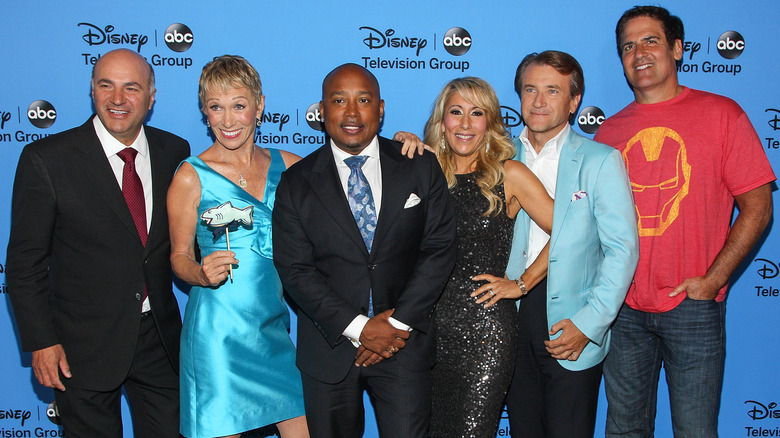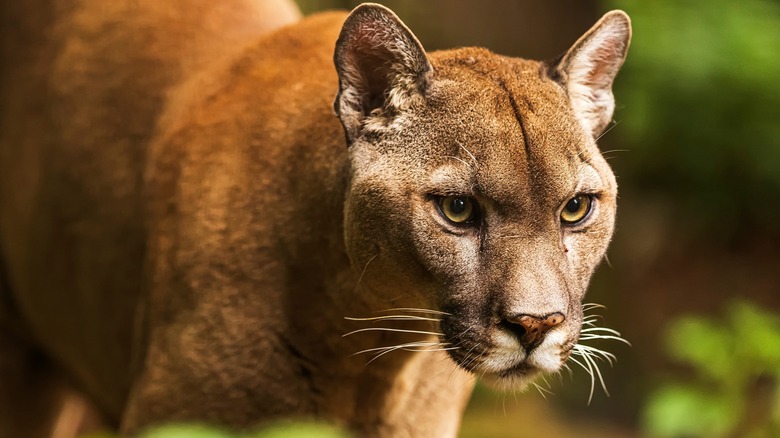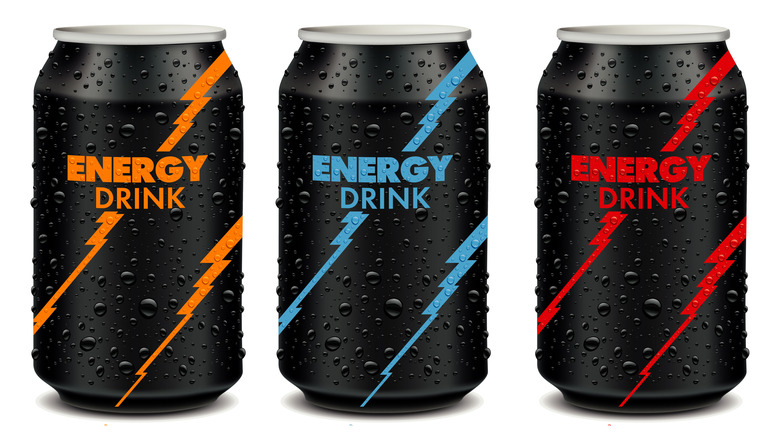Where Is Cougar Energy From Shark Tank Today?
Numerous publications have dubbed it one of the worst "Shark Tank" pitches of all time. None of the Sharks invested in it. The startup no longer even exists. What is it? Cougar Limited, of course!
Ryan Custer — in his 20s at the time — spent his savings and continued living with his parents to make his dream a reality. He intended to popularize an energy drink with supposed anti-aging benefits targeted at older women. "The Sharks will give me the opportunity," Custer informed the cameras, "to now get that in front of all the women that are asking for it."
Back in 2012, Custer appeared on Season 3 Episode 15 of "Shark Tank", where he offered the judges 30% equity of his company for the price of a $150,000 investment. The thing is, much of his pitch hinged on the idea that the ubiquity of this term, "cougar," could sell the product itself. The Sharks disagreed. Daymond John wasn't impressed by its limited sales. Barbara Corcoran thought the drink tasted like chalk. Kevin O'Leary felt the industry was too competitive. Robert Herjavec stated it was an overvalued gag gift. Mark Cuban pointed out that using a popular term doesn't guarantee success.
Tellingly, when Custer handed his 35-year-old "cougar" girlfriend, Dusty, one of his "cougar-tinis," she didn't appear to actually even drink it — only pretended. Custer also defined a cougar as being middle-aged, which he (inaccurately) stated ranges from 30 to 55. Failing to impress, Cougar Limited appeared doomed.
Cougar Limited had limited time
Cougar Energy is no more. The old Drink Cougar website now redirects to Custer's Creations, a professional site where one can find Custer's resume and email address. That resume confirms Custer ended his role as founder and CEO of Cougar Limited in 2014, just two years after his television debut. Since then, he has gone on to work as the director of operations at CryoPen, Inc., as a Dallas, Texas realtor, and as a freight associate at Home Depot. Custer also provides I.T. and creative business solution services to online retailers and small companies through Custer's Creations.
It seems that Custer is moving on to bigger and better things, but the legacy of Cougar Energy itself is not so positive. The product, although no longer available, is visible on Amazon, where it has a 2.7-star rating. A couple of the reviews are rave ones, but the others accuse this product of being expensive, offensive, and unappetizing. Facebook users were similarly critical, with one commenting on Cougar Limited's banner picture, "Because no one knows what's good for a woman's body better than a 25 year old bro."
Are energy drinks big business?
For an energizing, anti-aging product, Cougar Energy had a surprisingly small amount of energy and endurance. Is it possible this failure had more to do with the energy drink industry than Cougar Energy specifically? After all, as Mr. Wonderful said to Custer, "The distributors that control this space get paid very well by the big brands. They get paid to crush cockroaches like you."
Indeed, although the market has steadily grown since that time, this has mostly been to the benefit of large companies such as Monster and Red Bull. So, energy drinks might be a multi-billion-dollar industry, but not for little ventures such as Cougar Limited. Plus, in the grand scheme of things, energy drinks are still a relatively niche subcategory of soft drinks. Additionally, it's mostly males aged 18 to 34 who consume energy drinks, so what Custer viewed as an unfulfilled market may actually just be negligible demand. Still, as the Sharks indicated, it's hard to look at such an expensive and unappetizing beverage, targeted at "cougars" by a young man, and conclude it ever could've truly thrived — even on a fairer playing field.


